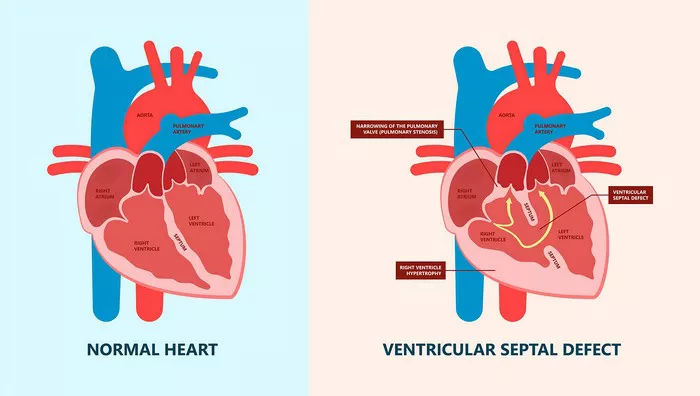Hypertrophic cardiomyopathy (HCM) is a condition characterized by the abnormal thickening of the heart muscle, which can lead to various cardiac complications. While the primary cause of HCM is genetic mutations, there has been ongoing research and debate about the potential role of stress in exacerbating or triggering this condition. This article delves into the relationship between stress and hypertrophic cardiomyopathy, exploring the mechanisms, potential effects, and preventive strategies.
Understanding Hypertrophic Cardiomyopathy
Hypertrophic cardiomyopathy is a genetic disorder that affects the heart muscle. The hallmark feature of HCM is the thickening (hypertrophy) of the ventricular walls, particularly the left ventricle. This thickening can obstruct blood flow out of the heart, leading to various symptoms and complications, including:
- Shortness of breath
- Chest pain
- Fainting (syncope)
- Palpitations
- Sudden cardiac arrest
HCM is usually inherited in an autosomal dominant pattern, meaning that only one copy of the mutated gene is necessary to cause the condition. The genes commonly associated with HCM encode for proteins that are critical for the structure and function of the cardiac muscle.
Stress And Hypertrophic Cardiomyopathy
Stress is a natural physiological response to perceived threats or challenges, activating the body’s “fight or flight” mechanism. This response involves the release of stress hormones such as adrenaline and cortisol, which prepare the body to deal with immediate danger. While this response is beneficial in short bursts, chronic stress can have detrimental effects on overall health, particularly on the cardiovascular system.
Mechanisms Linking Stress And Heart Health
Sympathetic Nervous System Activation: Chronic stress leads to prolonged activation of the sympathetic nervous system, resulting in sustained increases in heart rate and blood pressure. This heightened state can contribute to the wear and tear on the heart muscle.
Hormonal Changes: Stress hormones like adrenaline and cortisol can induce changes in the cardiovascular system, including increased heart rate, blood pressure, and inflammation. These changes can exacerbate existing cardiac conditions, including HCM.
Inflammation: Chronic stress is associated with systemic inflammation, which can contribute to the progression of various cardiovascular diseases. Inflammation can also affect the heart muscle directly, potentially worsening the hypertrophy seen in HCM.
Can Stress Cause Hypertrophic Cardiomyopathy?
While stress is not a primary cause of hypertrophic cardiomyopathy (which is primarily genetic), it can potentially exacerbate the condition or trigger symptomatic episodes. Here are some ways stress might influence HCM:
Exacerbation of Symptoms: Individuals with HCM may experience worsening of symptoms such as chest pain, palpitations, and shortness of breath during periods of high stress. The physiological effects of stress can strain the heart, which is already compromised due to hypertrophy.
Increased Risk of Arrhythmias: Stress can increase the likelihood of arrhythmias (irregular heartbeats), which are a significant concern for individuals with HCM. Stress-induced hormonal changes and heightened sympathetic activity can create an environment conducive to arrhythmias.
Impact on Blood Pressure: Chronic stress can lead to sustained high blood pressure, which can further strain the heart muscle and exacerbate the thickening associated with HCM.
Stress Management And Hypertrophic Cardiomyopathy
Given the potential for stress to exacerbate HCM symptoms and complications, effective stress management strategies are crucial for individuals with this condition. Here are some approaches to managing stress in the context of HCM:
Lifestyle Modifications: Adopting a healthy lifestyle can significantly reduce stress levels. Regular physical activity (appropriate to one’s condition), a balanced diet, and adequate sleep are foundational elements of stress management.
Mindfulness and Relaxation Techniques: Practices such as mindfulness meditation, yoga, and deep breathing exercises can help reduce stress and improve overall well-being. These techniques promote relaxation and can lower heart rate and blood pressure.
Psychological Support: Counseling or therapy can be beneficial for managing chronic stress, anxiety, and depression.
Cognitive-behavioral therapy (CBT) and other therapeutic approaches can provide tools for coping with stress and improving mental health.
Social Support: Building a strong support network of family, friends, and support groups can provide emotional support and practical assistance in managing stress and living with HCM.
Medical Management: In some cases, medication may be necessary to manage stress and its effects on the heart. Beta-blockers, for example, can help control heart rate and reduce the risk of arrhythmias.
Research on Stress And Hypertrophic Cardiomyopathy
Research into the relationship between stress and HCM is ongoing, with studies focusing on various aspects of this interaction. Some key areas of research include:
Stress-Induced Cardiomyopathy: Studies have explored conditions like Takotsubo cardiomyopathy, also known as “broken heart syndrome,” where acute stress leads to temporary heart muscle weakness. While distinct from HCM, this condition underscores the impact of stress on cardiac function.
Genetic and Environmental Interactions: Research is investigating how genetic predisposition to HCM might interact with environmental factors like stress. Understanding these interactions could provide insights into how to better manage and treat HCM.
Psychosocial Interventions: Clinical trials are assessing the effectiveness of various stress-reduction interventions in improving outcomes for individuals with HCM. These studies aim to identify the most effective strategies for reducing stress and its cardiac impacts.
Conclusion
Can stress cause hypertrophic cardiomyopathy? While stress is not a direct cause of hypertrophic cardiomyopathy, it can significantly impact the condition by exacerbating symptoms, increasing the risk of complications, and potentially accelerating disease progression. Effective stress management is essential for individuals with HCM to maintain heart health and overall well-being. By adopting lifestyle modifications, practicing relaxation techniques, seeking psychological support, and adhering to medical management, individuals with HCM can better manage stress and its effects on their condition.


